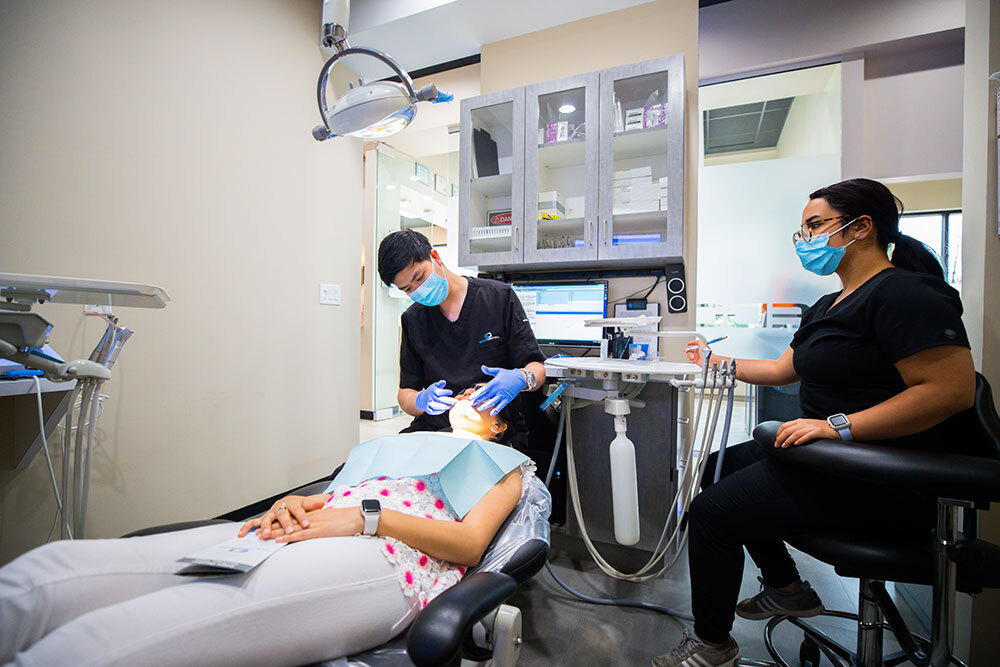Sleep apnea is a common sleep disorder that can lead to various health issues, including oral health problems. In Houston, TX, effective sleep apnea treatment houston tx options are available that not only help improve sleep quality but also positively impact oral health, such as through innovative solutions like gum whitening. This article will explore the advantages of seeking sleep apnea treatment and how it can lead to better oral health outcomes.
Understanding Sleep Apnea
Sleep apnea is characterized by repeated interruptions in breathing during sleep. These interruptions can last for several seconds to minutes and can occur numerous times throughout the night. The two most common types of sleep apnea are:
- Obstructive Sleep Apnea (OSA): This occurs when the muscles in the throat relax excessively, blocking the airway.
- Central Sleep Apnea (CSA): This is a less common type that occurs when the brain fails to send the appropriate signals to the muscles responsible for breathing.
Symptoms of Sleep Apnea
Common symptoms of sleep apnea include:
- Loud snoring
- Gasping for air during sleep
- Daytime fatigue and sleepiness
- Morning headaches
- Difficulty concentrating
If left untreated, sleep apnea can lead to serious health complications, including cardiovascular issues, high blood pressure, and diabetes.
How Does Sleep Apnea Treatment Improve Oral Health?
Seeking treatment for sleep apnea can significantly enhance oral health. Here are some key advantages:
1. Reduced Risk of Dental Issues
People with untreated sleep apnea often breathe through their mouths at night, which can lead to dry mouth. A dry mouth can increase the risk of cavities, gum disease, and bad breath.
By addressing sleep apnea, you can improve your breathing patterns. Treatments such as Continuous Positive Airway Pressure (CPAP) therapy help keep your airway open, allowing you to breathe through your nose and reducing the likelihood of dry mouth. As a result, your risk of dental problems diminishes.
2. Alleviation of Gum Disease
Gum disease is an inflammatory condition that can be exacerbated by poor sleep quality. Studies suggest a strong link between sleep apnea and periodontal disease. When you do not get enough restful sleep, your immune system may weaken, making it harder for your body to fight off infections, including gum infections.
Sleep apnea treatment can improve your overall health, thereby enhancing your immune response. A stronger immune system can help combat gum disease and promote healthier gums.
3. Improved Teeth Alignment
Sleep apnea can contribute to teeth grinding (bruxism), which can lead to worn-down teeth and misalignment. If you grind your teeth at night, your dentist may recommend a nightguard to protect your teeth. Treating the underlying sleep apnea can reduce bruxism episodes, helping to maintain proper teeth alignment and reduce the need for orthodontic treatments in the future.
What Role Does Gum Whitening Play in Oral Health?
While sleep apnea treatment directly influences oral health, maintaining a bright smile is also crucial. One effective way to achieve this is through gum whitening. Here’s how gum whitening near me complements sleep apnea treatment:
1. Enhanced Aesthetic Appeal
Whitening your gums can enhance your smile’s appearance, giving you more confidence in your oral health. People with sleep apnea often experience tooth and gum discoloration due to dry mouth and other factors. Gum whitening can improve the overall aesthetics of your mouth, making you feel more self-assured.
2. Complementing Overall Oral Care
Gum whitening can serve as an excellent complement to other oral health treatments you might pursue after receiving sleep apnea treatment. By taking a proactive approach to oral care, you can maintain healthier gums and teeth.
3. Psychological Benefits
A bright, healthy smile can boost self-esteem and improve your quality of life. If sleep apnea treatment allows you to get better sleep and feel more refreshed, whitening your gums can enhance your overall satisfaction with your oral health. Feeling good about your smile can positively affect your social interactions and self-confidence.
How to Access Sleep Apnea Treatment in Houston, TX
If you suspect that you have sleep apnea, seeking professional help is essential. Here’s how you can access sleep apnea treatment in Houston:
1. Consult a Sleep Specialist
Start by consulting a sleep specialist who can conduct a sleep study to diagnose the condition. They will assess your symptoms and may recommend further testing, such as a polysomnography (a comprehensive sleep study).
2. Explore Treatment Options
Once diagnosed, various treatment options are available:
- CPAP Therapy: A CPAP machine uses a continuous stream of air to keep your airway open during sleep. This is the most common and effective treatment for OSA.
- Oral Appliances: Dentists specializing in sleep medicine can create custom oral appliances that reposition the jaw to keep the airway open.
- Lifestyle Changes: Weight loss, avoiding alcohol, and sleeping on your side can significantly reduce sleep apnea symptoms.
3. Follow Up with Your Dentist
After beginning treatment for sleep apnea, follow up with your dentist to discuss your oral health. They can help you monitor any changes in your dental health and provide treatments like gum whitening to enhance your smile.
Conclusion: The Importance of Comprehensive Care
Addressing sleep apnea through treatment in Houston, TX, can provide numerous advantages for your overall health and well-being, particularly concerning your oral health. By seeking timely treatment, you can reduce the risk of dental issues, improve gum health, and prevent bruxism-related complications.
Furthermore, incorporating gum whitening into your oral health routine can boost your confidence and enhance your smile’s appearance. Prioritizing sleep apnea treatment and maintaining good oral hygiene can lead to a healthier, more vibrant life. If you suspect you have sleep apnea, take the first step today by consulting a healthcare professional in Houston. Your sleep, health, and smile are worth it!




